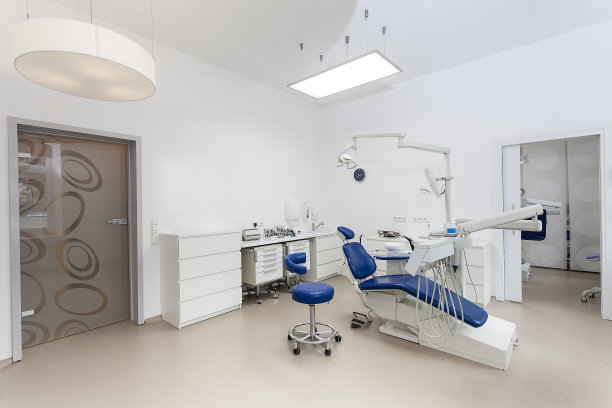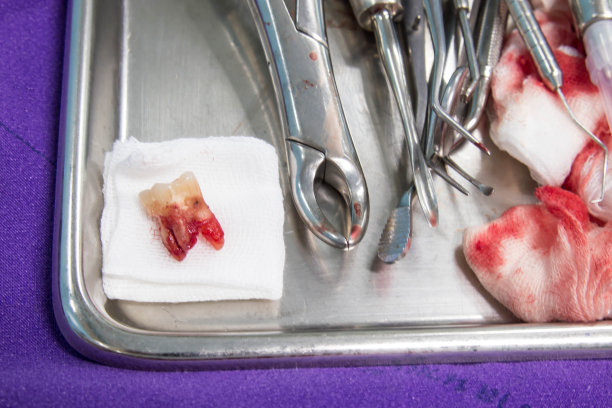Summary: Receiving dental fillings is a common procedure aimed at restoring the health and function of teeth affected by decay or damage. However, proper precautions should be taken both before and after the procedure to ensure optimal oral health. This article outlines essential steps you should follow, including preparation before the appointment, understanding the procedure itself, post-procedure care, and long-term oral hygiene practices. These guidelines will help you maximize the effectiveness of dental fillings and maintain overall dental health for years to come.
1. Preparing for Your Dental Appointment

Preparation for a dental filling appointment is crucial. Start by scheduling your appointment at a time when you are least stressed. This can reduce anxiety and help you be more open with your dentist regarding any concerns you may have. Being mentally prepared eases the visit and ensures you can follow the dentist’s recommendations more effectively.
Next, it’s essential to discuss your medical history with your dentist. Inform them of any allergies, medications, or health conditions that may affect the procedure. This step helps your dentist choose the most appropriate anesthetic and materials for your filling, ensuring a safer and more effective experience.
Finally, consider your dietary choices leading up to the appointment. Avoid hard, sticky, or overly sugary foods 24 hours before your visit. These types of foods can exacerbate tooth sensitivity or damage around the cavity site, making the procedure more uncomfortable.
2. Understanding the Filling Procedure
Having a clear understanding of the dental filling procedure can alleviate anxiety and help you mentally prepare for what lies ahead. Initially, the dentist will use a local anesthetic to numb the area surrounding the cavity. Knowing this can ease concerns about pain during the process.
Once you’re numbed, the dentist will remove the decayed portion of the tooth using various dental instruments. Understanding that this step is essential for eliminating bacteria and preventing further decay can make it easier to accept the necessary procedure.
After the decay is removed, your dentist will clean the area and prepare it for the filling. Depending on the material chosen for the filling—composite, amalgam, or another type—the dentist will then place and shape the filling material to restore the tooth’s original function and appearance.
3. Caring for Your Teeth After Fillings
After receiving dental fillings, proper care is crucial for the healing process. The first step is to avoid eating hard or crunchy foods for at least 24 hours. This prevents excessive pressure on the newly filled tooth, which can lead to discomfort and potentially damage the filling.
Pain or sensitivity may occur after the procedure, and it is essential to manage this discomfort properly. Over-the-counter pain relievers can be effective, but you should follow your dentist’s recommendations and avoid medications that might complicate your recovery.
Additionally, maintaining impeccable oral hygiene is critical post-procedure. Be gentle when brushing the filled tooth area for the first few days to avoid irritation. Swishing with warm salt water can also soothe the area if you experience any discomfort.
4. Long-term Oral Hygiene Practices
Achieving optimal oral health doesn’t stop after receiving dental fillings; it requires ongoing commitment. First, ensure you brush your teeth at least twice a day using fluoride toothpaste. Brushing helps remove plaque that can build up around fillings and prevent future decay.
Regular dental check-ups are also vital. Visiting your dentist every six months allows for timely assessments of your fillings and overall dental health. Your dentist can catch any issues early, which can save you from more extensive treatments down the line.
Lastly, be proactive about your dietary habits. Limit sugary snacks and beverages, as these can enhance the risk of decay even in filled teeth. A balanced diet rich in vitamins and minerals can promote your oral health significantly.
Summary:
In conclusion, ensuring optimal oral health after receiving dental fillings involves careful preparation, understanding the procedure, diligent post-care, and long-term hygiene practices. By following these essential precautions, you can extend the life of your fillings and maintain healthier teeth overall.
This article is compiled by Vickong Dental and the content is for reference only.
Vickong Dental
Vickong Dental is a large medical group established in Hong Kong in 2008 by professors from well-known medical universities in Guangdong and Hong Kong, as well as medical doctors from key national '985' universities (including Master's supervisors and senior professors). The chain of branches brings together expert dentists with PhDs and Master's degrees from Hong Kong and Mainland China, committed to providing high-quality dental treatment.
"Vickong Dental Practices the University Motto of 'Healing and Serving Society,' with a Stable Operation for Sixteen Years. It Has Been honored with Hong Kong Enterprise Leaders's Choice,' and is a Global Trusted Implant Center for the Nobel Implant System. Recommended by Hong Kong Metro Broadcast and Guangdong Television, it Serves Customers from Over Thirty Countries and Regions, Gaining the Trust and Favor of Citizens from the Guangdong-Hong Kong-Macau Greater Bay Area and Surrounding Cities.

Thousands of customers' unanimous praise
The most recognized and highly recommended dental service by customers in the Guangdong-Hong Kong-Macau Greater Bay Area
We Ensure You Receive Detailed Care and Attention Here
Hong Kong standards, Shenzhen prices, Your Trusted English-speaking dentists

Vickong Dental Medical-Grade Instrument Disinfection Process
Vickong Dental Medical-Grade Instrument Disinfection Process

Vickong Dental Chain: A Warm and Comfortable Environment for Treatment






Appointment Hours

Q&A
Why choose Vickong Dental?
Vickong Dental practices the university motto 「Medicine to Benefit Society」, with each branch bringing together highly qualified dentists with doctoral and master’s degrees from Hong Kong and the Mainland, and has maintained seventeen years of steady operation。Recipient of 「2024 Hong Kong Enterprise Leaders Brand」, 「2025 Hong Kong Enterprise Leaders Brand」, a Nobel Biocare Global Trusted Implant Center, and a brand recommended by Metro Radio Hong Kong and Guangdong TV。
To date, we have served customers from more than thirty countries and regions,earning exceptionally high word-of-mouth recognition and trusted recommendations from residents across the Guangdong-Hong Kong-Macao Greater Bay Area and surrounding cities
We have eight major branches in Zhuhai、Shenzhen,and a consultation and service assurance center in Hong Kong,so you can book a free consultation at any time for any questions,which is very reassuring.
If I do not accept the quotation after the CT scan, will I be charged??
No! As long as the actual treatment has not started, you will not be charged any fees.
Will there be any additional charges during the treatment process?
No, there won’t be any additional charges. Before treatment begins, we will clearly explain the treatment plan and its corresponding fees. Only after the patient agrees and signs the consent form will we proceed with the dental service.
Can I pay in Hong Kong dollars?
Yes. Vickong Dental accepts payment in Hong Kong dollars. The amount will be converted based on the exchange rate of the day, and the applicable rate will be clearly communicated to you in advance.
Can I reschedule my appointment at any time?
Yes. Please contact us via **WeChat** or **WhatsApp** as early as possible, providing your original appointment time and details, along with your preferred new date and time slot for rescheduling.













